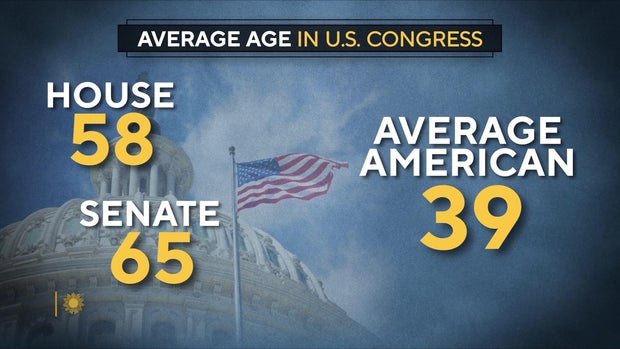The Washington Post’s Dan Balz is considered by many the dean of political reporters. Balz is 77 years old – the same age as former Presidents Trump, Clinton and Bush. He says the spotlight on President Biden’s age (81) is understandable, and nothing new.
In 1984, when Ronald Reagan – then 73 – was running for reelection, he playfully used his age as an asset when debating his opponent, 56-year-old Walter Mondale: “I will not make age an issue of this campaign,” Reagan said. “I am not going to exploit, for political purposes, my opponent’s youth and inexperience.”
Balz said, “I think the lesson would be that you have to confront the issue directly, and you have to find a way to diffuse it and to get people to move past it. You don’t want people dwelling on it.”
When asked if he thinks the issue of age can dominate the discussion, while policy issues don’t get the bandwidth they deserve, Balz said, “Yeah, I think that is a concern. It’s easier to focus on age, I mean, because everybody kind of gets that. It’s harder to get people to understand the matrix of all of the legal cases that former president [Trump] is involved in, or the choices that President Biden is having to make in his dealings with the government of Israel and dealing with war in Ukraine.
“You know, it’s easy to oversimplify and say, ‘Well, this campaign’s all about age.’ Well, age is part of it, but it’s not all about age,” said Balz.
Mr. Biden has pushed back, doing so with humor. Last April he told his audience, “I believe in the First Amendment — not just because my good friend Jimmy Madison wrote it.”
Balz said, “He’s done some extraordinary things as president. I mean, that trip to Ukraine that he took was a seriously taxing, physically taxing trip. We saw at the State of the Union last year, in spontaneous moments, him take on the Republicans over Social Security.”
Some media watchdogs argue President Biden’s age has been over-covered, over-stated, and over-analyzed, particularly when compared to former President Trump’s. “I think that one of the realities is that former President Trump makes many gaffes,” said Balz. “We know that he mixed up Nikki Haley and Nancy Pelosi during the New Hampshire primary.”
When asked if the talk about age on the campaign trail is really a frustration about the candidates themselves, Balz replied, “I don’t know how you separate that people don’t want a rematch from [2020]. Partly one of the reasons is that these are two elderly candidates. There is a sense that there is a kind of a cork in the bottle politically of an older generation, frankly of my generation.”
“But the Baby Boom generation doesn’t seem to be going anywhere,” said Costa.
“Well, it is going somewhere, slowly!” Balz laughed.
Generational tension is hardly limited to the White House: since 2017, we’ve had the oldest Congress in history. With the Silent Generation (those born 1928-45), and Baby Boomers (1946-64) still ensconced in power, Gen X (1965-80), Millennials (1981-96) and those younger are vying for more seats.
California Democratic Representative Sara Jacobs is one of the five youngest members of Congress. “I just turned 35, so I think about this a lot,” she said. “Because in my normal life I am starting to feel quite old. Then I get to Congress, and I feel young again!”
She’s pushing the average age of House members down a notch, and pushing the concerns of young voters to the forefront.
Costa asked, “So often young people, let’s say those under 40, get painted with a broad brush, [that] they don’t care about politics. Do you buy that?”
“No. That’s total bulls***,” Jacobs replied. “I was in middle school when September 11th happened. And I haven’t known a day in my adult life the United States has not been at war. The financial crisis happened right as I was graduating from college. As soon as Millennials were hitting their stride, we had a global pandemic. Gen Z has known nothing but school shootings and active shooter drills, a climate crisis that isn’t being addressed with the urgency that it deserves.”
Jacobs has championed privacy legislation for reproductive health data, such as menstrual cycle tracking apps. The concern: safeguarding information that could be used to prosecute those suspected of having an abortion in states where the procedure is banned.
Asked what it’s like to talk to an older, male member of Congress about a period-tracking app, Jacobs said, “I’ve definitely had my fair share of making my colleagues a little bit uncomfortable. The fact of the matter is, if we aren’t talking about these issues, we certainly aren’t making good policy about them.”
Policy for the people, by the people. It’s a challenge for the ages.
For more info:
Story produced by Ed Forgotson. Editor: Ed Givnish.
See also:

